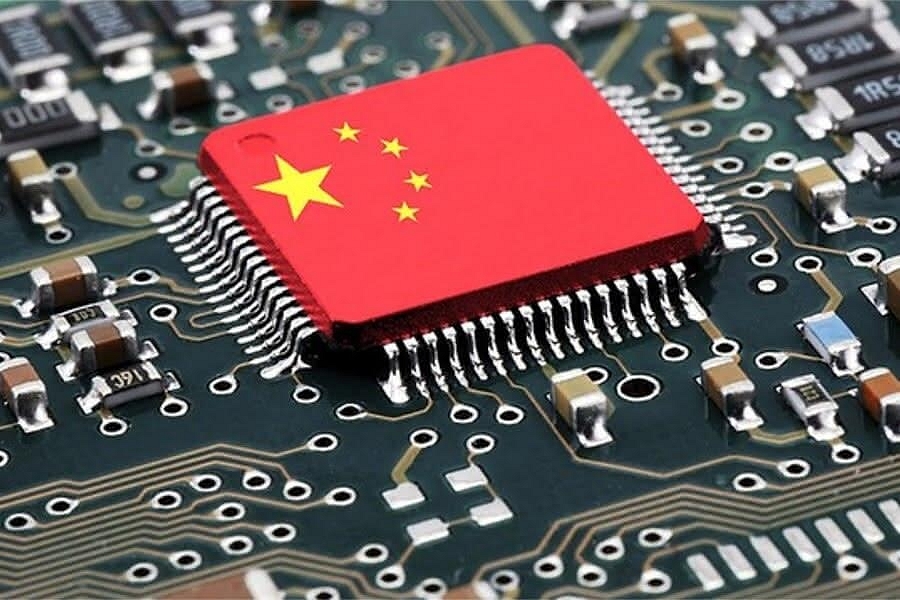Analysis
Big Setback To China's Plan For Self-Sufficiency In Semiconductors As State Backed Chip Manufacturing Giant Tsinghua Unigroup Faces Bankruptcy
- Over the years, the Chinese government has poured huge funds into Tsinghua Unigroup, along with other chip makers such as Semiconductor Manufacturing International Corp, in hopes of building national champions in chips.
- The group is now entering bankruptcy proceedings.

(graphic)
Chinese semiconductor manufacturer Tsinghua Unigroup, once viewed as China’s best bet for reducing dependence on imported chips and mounting a challenge against foreign chip manufacturers, announced last week that one of its creditors has requested a court to begin bankruptcy proceedings against the company.
One of its creditor, the Hong Kong-listed Huishang Bank, has requested a court to begin bankruptcy proceedings.
According to analysts, Tsinghua Unigroup had more than $30 billion in debt and just $8 billion in cash and cash equivalents.
in November 2021, the Chinese chip manufacturing behemoth shocked investors by defaulting on a 1.3 billion yuan (US$200 million) bond. By end of last year the group had defaulted on $3.6bn worth of bonds, including $2bn denominated in dollars.
Tsinghua Unigroup Key To Chinese Quest For Self-Sufficiency In Semiconductors
Over the years, the Chinese government has poured huge funds into Tsinghua Unigroup, along with other chip makers such as Semiconductor Manufacturing International Corp, in hopes of building national champions in chips.
Although China is the world’s largest consumer of semiconductors, it has a disproportionately small international market share of production and a very low domestic chip self-sufficiency rate.
Originally incubated at the Tsinghua University in 1988 (51 per cent is still owned by the University and 49 per cent by company Chairman Zhao Weiguo), Tsinghua Unigroup turned in to an enterprise in 1993. Tsinghua Unigroup gradually established itself as a leading firm in memory chips, memory manufacturing, mobile Internet, cloud computing, and cloud services.
Tsinghua Unigroup embarked on an aggressive acquisition strategy to compensate for gaps in the Chinese IC industry in chip design and manufacturing.
The Tsinghua Unigroup bought Spreadtrum and RDA, two of the top three chip design companies in China, and thereby became one of the most influential performers in the domestic market. The acquisition was funded by 20 billion yuan in loans from China's National Development Bank.
In 2015, Tsinghua Unigroup became the shareholder of Hewlett-Packard Co.’s H3C company, Western Digital, and SanDisk. The acquisitions of H3C, Western Digital, and SanDisk was aimed at breaking the foreign technology monopoly, allowing Tsinghua Unigroup to produce memory
In 2015, it made an attempt to acquire US$23 billion bid to buy US memory chip champion Micron Technology but the bid did not materialise.
Tsinghua Unigroup, with generous support from local government, invested close to $100 billion successively in Wuhan, Nanjing, Chengdu, and other areas to build a memory chip and memory manufacturing factory, shifting from M&A to the independent construction of its manufacturing base.
The Chinese conglomerate also owns Yangtze Memory Technology (YMTC) which is building string-stacked 128-layer NAND using separate controller logic chips and NAND chips — a technology called Xtacking. However the investment is yet to produce good results for the company.
Unisoc, an unit of the company that makes logic chips for mobile phones, has also suffered due to loss of business from Samsung
In December 2020, US administration announced that it was put China’s largest chipmaker Semiconductor Manufacturing International Corp. (SMIC) on a export blacklist. The chip-maker will be denied access to advanced US technology as US government determined that it posed risk due to close ties with Chinese military.
SMIC is China’s largest contract chip manufacturer and could jeopardise China’s long-standing ambitions to become self-reliant on critical technologies.
Support Swarajya's 50 Ground Reports Project & Sponsor A Story
Every general election Swarajya does a 50 ground reports project.
Aimed only at serious readers and those who appreciate the nuances of political undercurrents, the project provides a sense of India's electoral landscape. As you know, these reports are produced after considerable investment of travel, time and effort on the ground.
This time too we've kicked off the project in style and have covered over 30 constituencies already. If you're someone who appreciates such work and have enjoyed our coverage please consider sponsoring a ground report for just Rs 2999 to Rs 19,999 - it goes a long way in helping us produce more quality reportage.
You can also back this project by becoming a subscriber for as little as Rs 999 - so do click on this links and choose a plan that suits you and back us.
Click below to contribute.
Latest